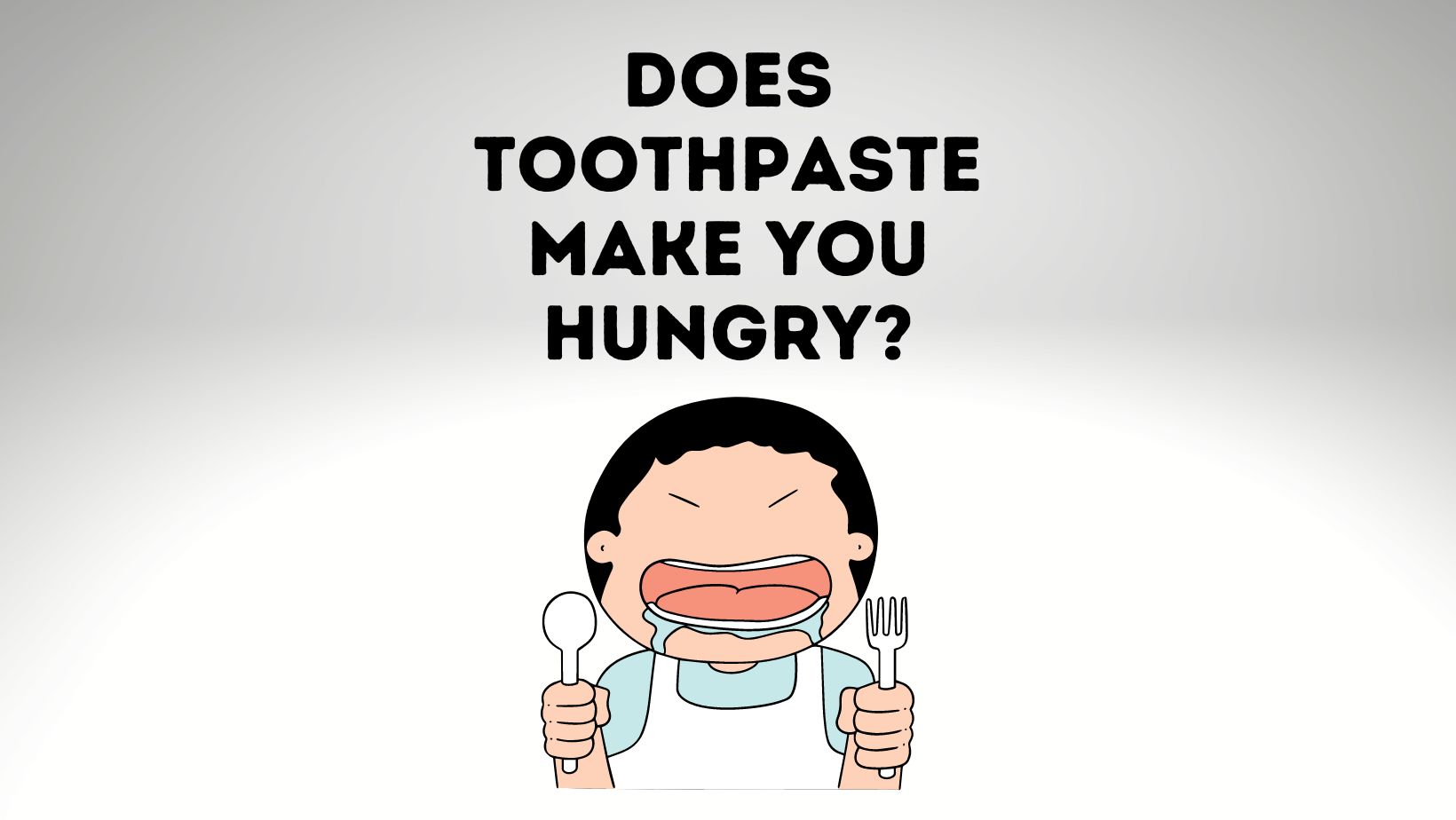
Toothpaste, a dental care product that we use regularly, helps to maintain oral hygiene and fresh breath. Toothpaste undoubtedly has a major effect on how good our dental and oral health care is.
However, have you ever noticed an increase in hunger after brushing your teeth?
Well, a lot of people claim that they experience hunger and increased appetite right after brushing. This phenomenon is known as the “Toothpaste appetite effect” and has been a topic of debate in the scientific community. According to some unproven claims, toothpaste can stimulate the release of hormones that trigger hunger. However, several studies dispute this idea also since there isn’t any scientific evidence to support it.
To better understand this phenomenon, let’s delve into the research and explore whether toothpaste can actually make you hungry.
The toothpaste appetite effect is thought to be caused by the taste and smell of toothpaste. Both of these are known to stimulate the release of hormones such as insulin and cortisol. It further leads to increased hunger. However, since nothing as such is proven, it is better to focus on maintaining good oral hygiene habits and following a healthy diet. Rather you wasting time on toothpaste to control or increase your hunger.
Brushing & Our Appetite
Yes, brushing can undoubtedly affect your appetite.
The act of brushing can stimulate the digestive system and increase saliva production. This can further generate feelings of hunger. Additionally, the flavor and aroma of toothpaste can stimulate the release of hormones in the body. These hormones, including insulin and cortisol, are responsible for triggering your hunger.
Simultaneously for some individuals timing of brushing can have an impact on their appetite.
For example, if you brush your teeth first thing in the morning and then have breakfast, it will associate brushing with breakfast (hunger) in your brain. Conversely, for others, brushing before bedtime can create a mental belief that you no longer need to eat.
In addition, the flavor of toothpaste can also play a role in triggering appetite. Especially, Minty toothpaste plays a major role in controlling your appetite. It is exactly the way how having mint mouth freshener is a tradition after meals. Similarly, for some, the hint of sweetness in toothpaste can stimulate hunger.
PLEASE NOTE: None of these concepts have been studied in detail.
It is important to note that the effects of brushing on appetite can vary from person to person. Other factors such as diet, exercise, and stress may also be influenced by appetite.
How Long Should I Wait To Eat Or Drink After Brushing My Teeth?
It is recommended to wait for about 30 minutes after brushing your teeth to eat or drink. This allows enough time for the fluoride in toothpaste to fully remineralize your teeth, strengthening and protecting them from decay.
If you eat or drink too soon after brushing, the acid from food or drink can break down the fluoride, making it less effective. Additionally, consuming food or drink too soon after brushing can also lead to plaque formation. This can further harm the enamel of your teeth.
Waiting for 30 minutes after brushing your teeth is an important step in maintaining oral health. It allows the fluoride in toothpaste to fully remineralize your teeth, reducing the risk of decay and plaque formation. Make it a habit to wait for at least 30 minutes before eating or drinking, and your teeth will thank you!
10 Surprising Facts About Brushing Your Teeth
- Brushing your teeth twice a day is recommended by dentists. However, a few studies suggest that brushing three times a day may be even more effective in preventing plaque build-up and gum disease.
- The first toothbrush with bristles was made in China in the 15th century. Before that, people across the world used chew sticks to clean their teeth.
- The proper technique for brushing your teeth involves using a circular motion. In addition, you must spend two minutes brushing.
- Brushing your teeth can help prevent bad breath and improve oral health; however, it isn’t enough alone. Eating a healthy diet and avoiding foods that cause bad breath, as well as drinking plenty of water, are also important.
- Brushing your teeth too hard or using a toothbrush with stiff bristles isn’t advisable. It can cause damage to the enamel and gum tissue.
- The first toothpaste was made from salt, baking soda, and hydrogen peroxide. However, the toothpaste we find today has ingredients like fluoride, xylitol, and menthol.
- Brushing your teeth before bed is important because it removes plaque and food particles.
- People with braces may need to brush their teeth more often. They, in fact, need to use a special type of toothbrush to clean their braces effectively.
- It is important to replace your toothbrush every three to four months or sooner if the bristles start to fray.
- Some electric toothbrushes are more effective at removing plaque and preventing gum disease than manual toothbrushes. However, the type of toothbrush you use is not as important as how you use it and how often you brush.
Conclusion
Even though toothpaste does or does not affect your hunger level, it is important to brush regularly. Toothpaste is a product designed for dental care and oral hygiene and should be used for the same purpose only.
If you are confused about associating hunger with toothpaste, consult a dentist. Avoid relying on a tube of toothpaste to initiate or killing down your hunger.

Hi, This is Lyn, I suffer from dental sensitivity for a very long time. PowerToothpaste.com is where I share my views of various toothpaste brands, along with tips on how to use toothpaste and what to look for when purchasing.
